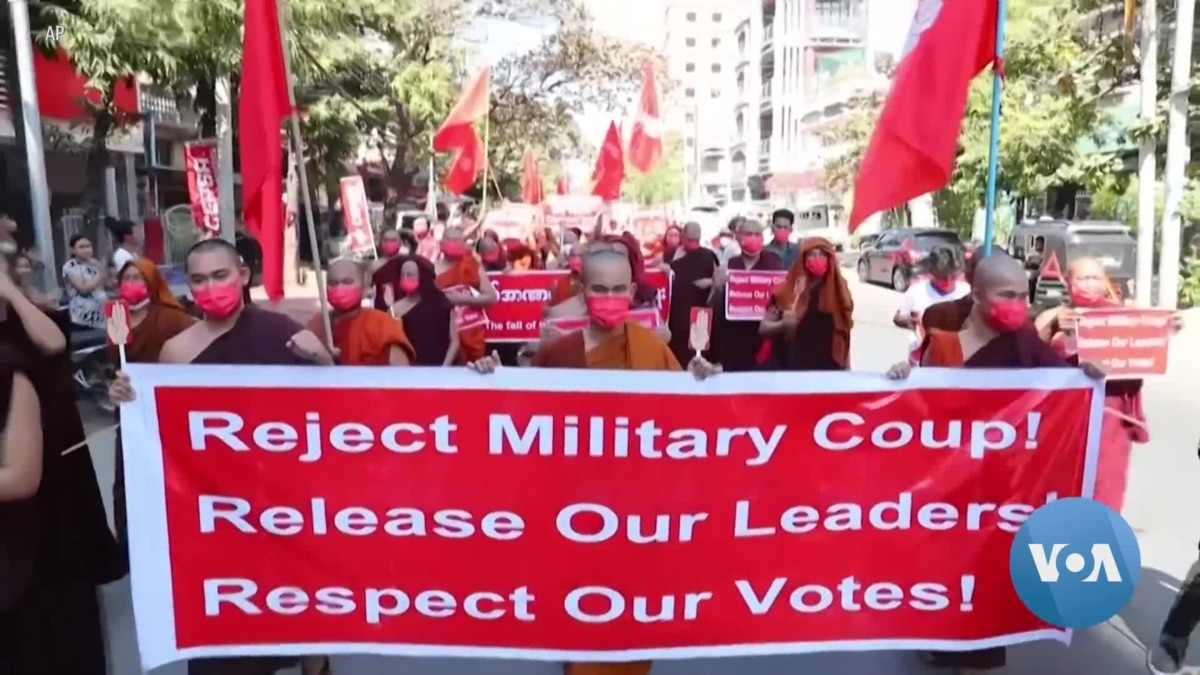Double Standards In Myanmar: Why Are Sanctions Targeting Only The Military?

Table of Contents
The Rationale Behind Targeted Sanctions
The international community's focus on targeted sanctions against the Myanmar military stems from a complex interplay of factors.
Focus on Accountability for Atrocities
The Tatmadaw's actions since the February 2021 coup have been widely condemned as egregious violations of human rights.
- Ethnic cleansing: The military's long history of persecution against the Rohingya Muslim minority, culminating in the 2017 atrocities, remains a stark example.
- Extrajudicial killings: Thousands of civilians have been killed by the military since the coup, often with little to no accountability.
- Ongoing coup: The military's violent seizure of power and subsequent suppression of dissent are major drivers of the current crisis.
These actions clearly violate international law, specifically the Rome Statute of the International Criminal Court, providing a legal basis for targeted sanctions against individuals and entities responsible for war crimes and crimes against humanity. The difficulty in targeting the entire Myanmar economy lies in the potential for severe harm to the already vulnerable civilian population. A targeted approach aims to mitigate this risk.
Minimizing Harm to the Civilian Population
Broad, comprehensive sanctions risk exacerbating the humanitarian crisis in Myanmar.
- Food shortages: Economic sanctions can disrupt food supply chains, leading to widespread hunger and malnutrition.
- Economic hardship: The already fragile economy could collapse, further impoverishing the population.
- Reduced access to healthcare: Sanctions can hinder access to essential medicines and medical supplies, undermining public health.
Therefore, the strategy of targeting specific individuals and entities within the military, such as imposing travel bans and asset freezes on key military leaders and their businesses, aims to maximize pressure on the regime while minimizing the negative consequences for ordinary citizens.
Arguments Against Targeted Sanctions
Despite the rationale behind targeted sanctions, critics argue they are insufficient to address the root causes of the crisis.
Ineffectiveness in Achieving Regime Change
While targeted sanctions aim to pressure the military, their effectiveness in achieving regime change remains questionable.
- Lack of substantial change: The Tatmadaw's behavior hasn't significantly changed despite the sanctions.
- Failed to curb military actions: Sanctions have not prevented further human rights abuses or a return to democratic governance.
- Alternative approaches: Targeted diplomacy, increased international pressure through multilateral bodies like the UN Security Council, and support for the National Unity Government (NUG) could complement or even replace sanctions as more effective strategies.
The Role of International Business and Complicity
Another critique focuses on the role of international businesses in perpetuating the crisis.
- Business involvement: Numerous international companies have operated in Myanmar, some unknowingly, others knowingly supporting the military regime.
- Ethical implications: Businesses profiting from the military regime's activities, directly or indirectly, raise serious ethical concerns.
- Expanding sanctions: Critics argue that sanctions should extend to businesses complicit in supporting the Tatmadaw, cutting off a crucial source of revenue for the regime.
The Broader Context: Systemic Corruption and Impunity
The crisis in Myanmar is deeply rooted in systemic corruption and a culture of impunity.
Deep-Rooted Corruption Within Myanmar
Corruption within the Myanmar government and military is pervasive.
- Pervasive corruption: Corruption has undermined governance, fueled human rights abuses, and hindered economic development for decades.
- Hindering economic development: Corruption diverts resources away from essential services and fuels inequality.
- Implications for international efforts: Tackling corruption is crucial for promoting good governance and establishing accountability.
The Need for a Comprehensive Approach
Addressing the crisis in Myanmar requires a multi-pronged strategy.
- Combined approach: A holistic approach is needed, combining targeted sanctions with diplomatic efforts, strong support for civil society organizations, and enhanced international cooperation.
- Addressing root causes: Tackling ethnic tensions and political inequalities is essential for lasting peace.
- Accountability mechanisms: Establishing robust accountability mechanisms to address past atrocities and prevent future abuses is paramount.
Conclusion
The selective application of sanctions in Myanmar, while aiming to hold the military accountable for atrocities, raises serious concerns about double standards and effectiveness. While targeted sanctions can minimize harm to civilians, they may not be sufficient to achieve lasting change without addressing the broader systemic issues like corruption and impunity. A more comprehensive and coordinated international strategy is crucial to address the complex crisis in Myanmar. This requires revisiting the current approach to the double standards in Myanmar and exploring a more holistic strategy that encompasses targeted sanctions, diplomatic pressure, robust support for civil society, and an unwavering commitment to holding all perpetrators of human rights abuses accountable. Failure to do so will perpetuate the suffering of the Myanmar people and undermine the prospects for a lasting and just peace.

Featured Posts
-
 House Budget Plan Significant Tax Increase For Harvard Yale Endowments
May 13, 2025
House Budget Plan Significant Tax Increase For Harvard Yale Endowments
May 13, 2025 -
 Coinsilium Group Limited A Deep Dive Into The Forza Launch In Gibraltar
May 13, 2025
Coinsilium Group Limited A Deep Dive Into The Forza Launch In Gibraltar
May 13, 2025 -
 Eva Longoria 50 Evesen Igy Orzi Formajat
May 13, 2025
Eva Longoria 50 Evesen Igy Orzi Formajat
May 13, 2025 -
 Vittoria Ceretti And Leo Di Caprio A Met Gala Moment
May 13, 2025
Vittoria Ceretti And Leo Di Caprio A Met Gala Moment
May 13, 2025 -
 Ali Larter And Angela Norris Respond To Landman Criticism Billy Bob Thorntons Support
May 13, 2025
Ali Larter And Angela Norris Respond To Landman Criticism Billy Bob Thorntons Support
May 13, 2025
